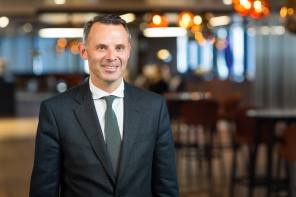

Aviva is planning a nationwide roll-out of its adviser business, in what looks like a direct challenge to rivals Standard Life and Old Mutual Wealth, as well as traditional advice firms.
Speaking today (3 August) after the release of the company's half year results, Andy Curran, managing director of Aviva’s workplace business, said the pension provider is looking to turn its Aviva Financial Advice into a national proposition.
“We currently have 33 trained advisers and another 20 in training. How big it gets depends on demand to be honest," he told FTAdviser.
“We don’t have an absolute target in mind but to have a substantial and sizable UK-wide process we will have to grow from where we are.”
Mr Curran said the service is currently focused in the Midlands and the south east and it would look to achieve a greater geographic spread.
But he said it would not do this by acquisition, preferring to hire or train advisers instead.
The move seems to put Aviva into direct competition with rivals Standard Life and Old Mutual Wealth, companies at the vanguard of the resurgence of product providers owning distribution channels.
Aviva already owns advice network Sesame Bankhall Group. But since closing its investment advice arm in 2015 following a string of censures by the regulator, Sesame Bankhall has focused only on mortgage advice and compliance services, leaving a gap in Aviva's stable for wealth advice.
Standard Life, which is due to gain final approval on its merger with fund management giant Aberdeen on 14 August, owns restricted national advice network 1825, which it has been building with a series of acquisitions across the country.
Old Mutual Wealth, part of the international Old Mutual group which includes fund management arm Old Mutual Global Investors, owns advice network Intrinsic, home to around 3,000 restricted advisers.
The rise of these so-called "vertically integrated" firms marks a near 360 degree turn post the Retail Distribution Review, a regulatory rule change designed to sever the link between those selling products and those on the frontline of advice recommending the best deal for clients.
The Financial Conduct Authority is now looking into these vertically integrated firms, after receiving feedback from some in financial services that they pose a serious risk of conflict of interest to savers and investors.
Elsewhere today Aviva reported it will be a “couple of years” before its direct-to-consumer platform becomes profitable, adding its adviser platform has already reached this milestone.
Total losses relating to Aviva’s “non-insurance activities” were £98m during the first half of 2017.
This division includes Aviva’s three platforms and Sesame. But Jason Windsor, the Aviva UK chief financial officer, said only one of these was now not profitable.
He said: “The adviser platform turned profitable during the half. It is now continuing to progress and henceforth will be profitable.
“It is the D2C platform which is subscale and has less than £1bn on it. Customer acquisition has been a bit of a challenge and that has contributed to the vast majority of those losses.”
When asked when he predicted that Aviva’s D2C platform would be profitable he said it would not be soon, adding that it would take “a couple of years at least”.
Mr Windsor said the company is improving its marketing to its existing customers in order to attract more assets onto its D2C platform.
damian.fantato@ft.com



